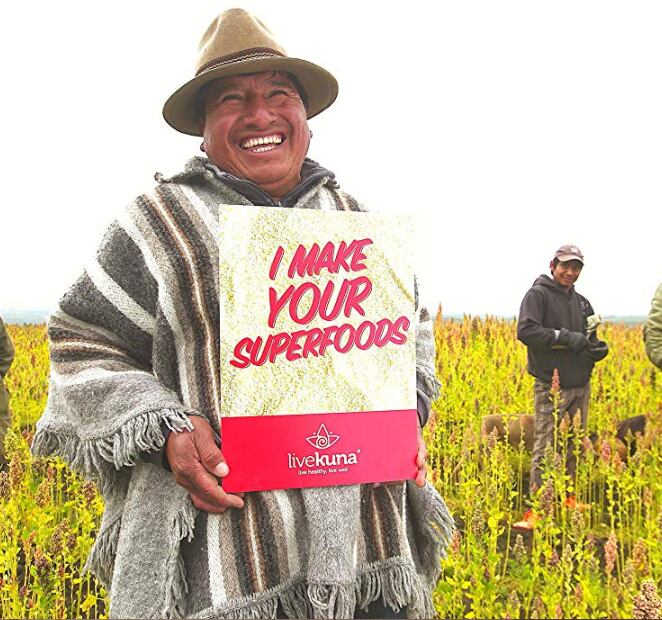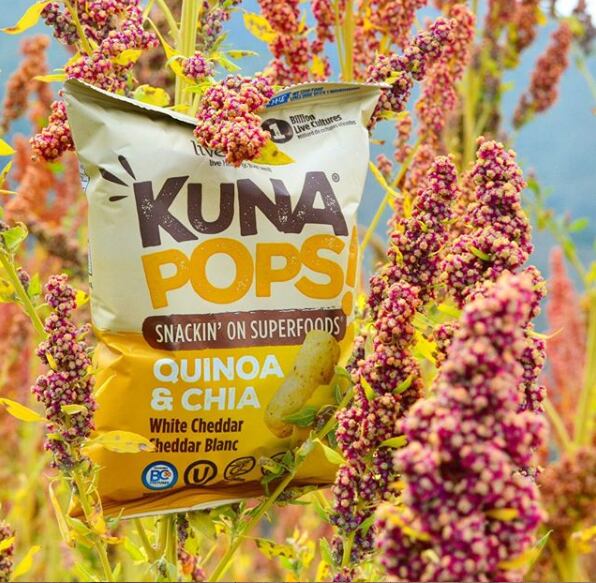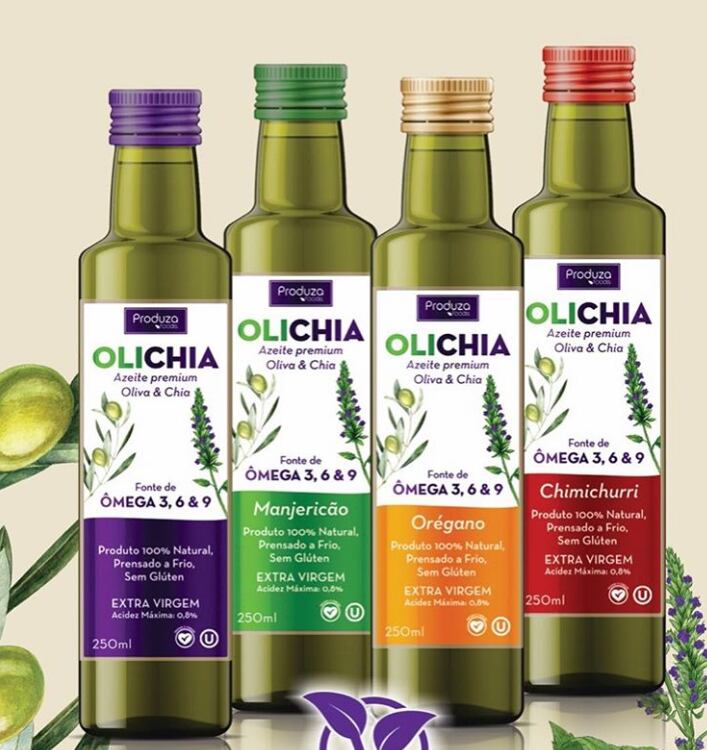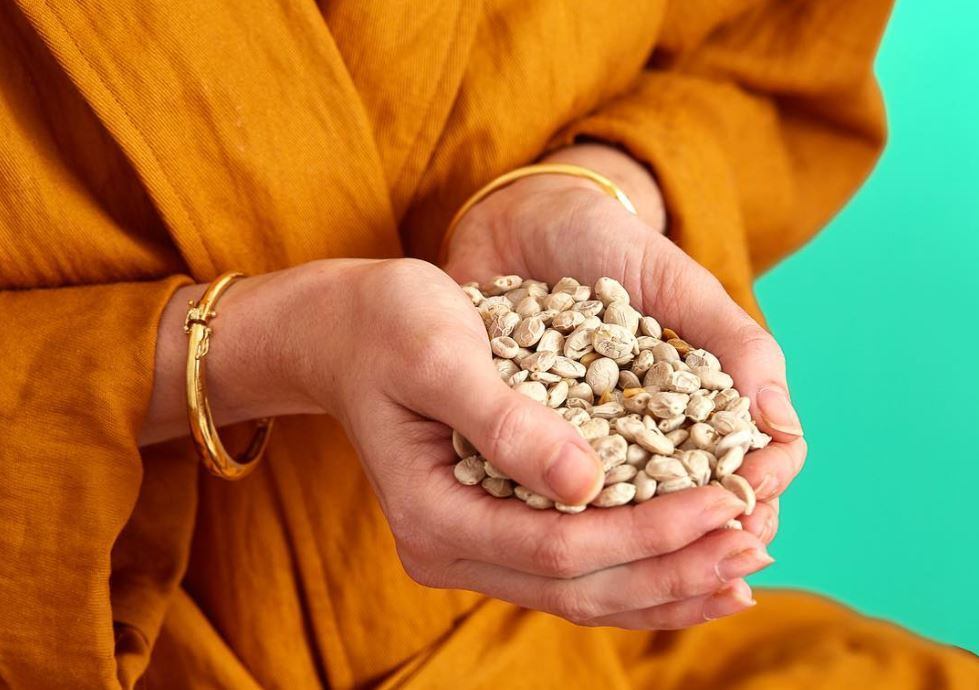LiveKuna's co-founder Santiago Stacey was born and raised in Ecuador but first discovered chia seeds and their nutritional benefits while in living in Toronto. After adding chia seeds to his diet and feeling healthier for it, the idea of growing the superfood ingredient in his native Ecuador took hold.
Stacey returned to Ecuador and, after teaming up with an old school friend who became his business partner, they began looking for farmers growing the crop, establishing LiveKuna in 2013. Today the company works with 500 Ecuadorian chia farmers and 500 quinoa farmers.
In 2014, chia seeds in Ecuador were 'only for export'
When the company started, however, there was no local demand for chia. LiveKuna’s debut product – whole, unprocessed chia seeds – was the first chia product to be launched in Ecuador.

“In 2014, 99% of the chia seeds being grown in Ecuador were being exported and only 1% was for local consumption," said Stacey. "We thought the fact it was grown by locals but not consumed by locals was crazy, insane and frustrating. We wanted to raise the awareness of chia in the country."
“It’s difficult to [introduce] a new food into a culture,” Stacey said. “In Ecuador, it was especially challenging because Ecuadorians are quite close-minded to trying new things. They like the old style. To give one example, Ecuador produces quinoa – along with Bolivia and Peru, we are the original quinoa producers - but it has been eaten in the same way in Ecuador for centuries, in soup form. Nobody thought of incorporating it as a salad, mixing it or drying it. That tells you a lot about the mentality.”
LiveKuna launched a strong social media campaign to create awareness, focusing on chia seeds’ healthy profile and how they can be easily added to foods people already eat, such as yogurt in the morning.
The campaign paid off and, according to Stacey, this first SKU grew 800% in the year following its launch in Ecuador. Today, sales from Ecuador, where it has listings in some of the biggest retailers such as Supermaxi and Mi Comisariato, make up around one-third of LiveKuna’s total sales. (A further 30% are from the US; 20% from Canada, and 15% from Mexico while Chile, Panama, and Trinidad make up 5%.)
'Breakfast cereal hasn't been innovated in a long time'
LiveKuna has since expanded to other products. In 2014, it added quinoa to its portfolio and in 2015 developed what Stacey calls “chia 2.0” – a blend of chia seeds and probiotics for Kuna Pops.
“Chia is a natural prebiotic so when you mix it with probiotics it creates a symbiotic effect,” he told FoodNavigator-LATAM at Food Tech Summit in Mexico City last week. A bag of Kuna Pops, made from quinoa, chia, rice, sunflower oil and natural seasonings with Ganeden BC30 probiotics, contains 6 g of protein and scores relatively well under Ecuador’s traffic light nutrition label with an amber light for fat and salt and green for sugar.
Kuna Pops are the company’s best-selling product but a breakfast cereal, which recently launched in Mexico, the US, and Canada, is catching up fast.
“This is because it is disrupting the cereal aisle,” Stacey said. “Breakfast cereal hasn’t been innovated in a very long time but it’s still there, sales are super high and constant. Our idea was to create a product that allows people to enjoy their cereal but feel good about it.”
LiveKuna’s cereal is made from rice flour, quinoa, chia seeds, brown sugar and natural flavors, and contains 4 g of sugar per 30 g serving, much lower than the standard cereal, said Stacey.
Value-added products
According to Stacey, the company strives to do business responsibly and, through a Canadian charity called Me to We, donates a portion of the sales from Kuna Pops (between 1 to 3% of each bag) to help low-income schools grow vegetables on-site to feed the children.
Each Kuna Pops bag has a code that consumers can use to trace in real-time the impact of Me to We’s work in the community in question.
Creating finished products also helps the company have a positive impact, he said.
“If you focus on the bulk, commodity side, there is more exploitation [of the producers] because prices are more competitive and fluctuate too much. If you create a value-added product, you can pay fair prices and then create a premium product.”
LiveKuna’s raw materials are processed at its own facility in Ecuador, strategically located between the capital, Quito, and the port city of Guayaquil and it works with an Ecuadorian co-packer to manufacture the snacks and cereals.




